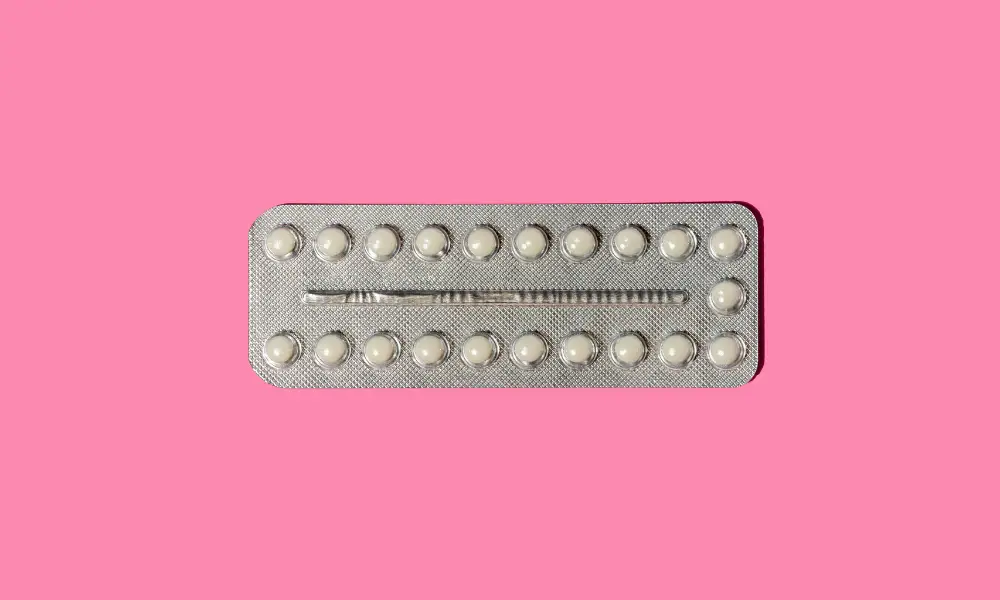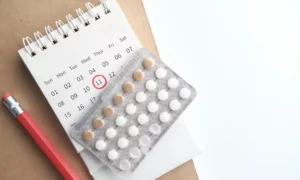PCOS, or Polycystic Ovary Syndrome, is a common hormonal disorder affecting individuals with ovaries. The challenges associated with PCOS often extend beyond the physical realm, impacting emotional well-being and overall quality of life. In the quest for effective solutions, many have explored the concept of a 21-day medicine for PCOS, a comprehensive approach that goes beyond conventional treatments. In this article, we delve into the significance of PCOS, its symptoms and signs along with some common medications and lifestyle changes that may be considered in managing PCOS over 21 days and more.
Contents
Understanding PCOS Symptoms 
The 21-Day Medicine Approach 
Polycystic Ovary Syndrome (PCOS) is a complex hormonal disorder, and its management often requires a multifaceted approach. While there isn’t a cure for PCOS, various medications and lifestyle changes can help manage symptoms. It’s important to note that self-prescribing medications can be dangerous, and you should consult with a healthcare professional before starting any treatment. The following information is for educational purposes and not a substitute for professional medical advice.
Here are some common medications and lifestyle changes that may be considered in managing PCOS over 21 days:
- Birth Control Pills
Oral contraceptives containing estrogen and progestin can regulate menstrual cycles and reduce androgen levels. - Anti-Androgen Medications
Spironolactone is an anti-androgen medication that may be prescribed to help reduce symptoms like acne and excess hair growth. - Metformin
This medication is often used to improve insulin sensitivity and regulate blood sugar levels, which can be beneficial for women with PCOS, especially if insulin resistance is a concern. - Lifestyle Changes
Adopting a healthy lifestyle can have a significant impact on PCOS symptoms. This includes maintaining a balanced diet, engaging in regular physical activity, and managing stress. - Nutritional Supplements
Some studies suggest that certain supplements like inositol and vitamin D may be beneficial for women with PCOS. However, it’s crucial to consult with a healthcare professional before adding any supplements to your routine. - Weight Management
For overweight individuals with PCOS, weight loss through a combination of a healthy diet and regular exercise can help improve symptoms. - Dietary Changes
Consider a diet that is low in refined carbohydrates and sugars, as this can help manage insulin levels. Focus on whole foods, fruits, vegetables, and lean proteins. - Regular Exercise
Physical activity can help improve insulin sensitivity and contribute to weight management. Aim for at least 150 minutes of moderate-intensity exercise per week.
Important Tips And Considerations For 21 Days Medicine For PCOS
If your healthcare provider has prescribed oral contraceptives (birth control pills) for the management of PCOS (Polycystic Ovary Syndrome), it’s important to follow their specific instructions. Typically, oral contraceptives are taken daily for 21 days, followed by a 7-day break or a period where placebo pills (inactive pills) are taken. This 28-day cycle is common, but the specific regimen can vary depending on the brand and formulation of the contraceptive.
Here’s a general guide for taking oral contraceptives for PCOS over 21 days:
- Start Date: Begin taking the active pills on the first day of your menstrual cycle or as directed by your healthcare provider.
- Daily Routine: Take one active pill at the same time each day, preferably with a meal or at bedtime, as advised by your healthcare professional.
- Follow the Pack Instructions: Most oral contraceptives come in packs with labelled days to help you keep track. Ensure that you are taking the pills in the correct order.
- Missed Doses: If you miss a dose, follow the instructions provided with your medication or consult your healthcare provider. It’s crucial to take the pills consistently to maintain their effectiveness.
- 21 Days of Active Pills: Take one active pill each day for 21 consecutive days. These pills contain hormones (estrogen and progestin) that regulate your menstrual cycle.
- 7-Day Break or Placebo Pills: After completing the 21 active pills, you will either take a 7-day break (no pills) or switch to placebo pills, depending on the brand. During this time, you may experience withdrawal bleeding, which is similar to a period.
- Restart the Cycle: After the 7-day break or placebo pill interval, start a new pack of active pills, regardless of whether or not you have finished bleeding.
- Continuous Use Option: In some cases, healthcare providers may recommend continuous use of active pills without a break to manage PCOS symptoms. Always follow your healthcare provider’s guidance.
It’s crucial to attend follow-up appointments with your healthcare provider to monitor your response to the medication and make any necessary adjustments to your treatment plan. If you have any questions or concerns about taking oral contraceptives for PCOS, don’t hesitate to contact your healthcare provider for clarification and guidance.
Potential Side Effects Of 21 Days Medicine For PCOS 
It’s important to note that individual responses to medication can vary, and not everyone will experience the same side effects. Here are some potential side effects of 21 days of hormonal pills for PCOS:
- Nausea: Some individuals may experience mild nausea, especially when starting a new pack. Taking the pill with food or at bedtime can help alleviate this.
- Breast Tenderness: Hormonal changes can lead to breast tenderness or swelling. This side effect is often temporary and tends to improve with time.
- Headaches: Some women may experience headaches, which can be a side effect of hormonal fluctuations. If headaches persist or become severe, it’s important to consult your healthcare provider.
- Mood Changes: Hormonal pills can impact mood in some individuals. While some may experience mood swings, others may find an improvement in mood. If mood changes are significant or troubling, discuss them with your healthcare provider.
- Weight Changes: While not everyone will experience weight changes, some individuals may notice weight gain or, less commonly, weight loss. It’s important to maintain a healthy lifestyle to minimize the risk of significant weight changes.
- Changes in Libido: Some women may experience changes in libido (sex drive) as a result of hormonal fluctuations.
- Spotting or Breakthrough Bleeding: Occasional spotting between periods or breakthrough bleeding may occur, especially during the first few months of using hormonal pills. If this persists, consult your healthcare provider.
- Changes in Menstrual Flow: Hormonal pills can affect the regularity and intensity of menstrual bleeding. Some women may experience lighter or shorter periods.
- Skin Changes: Oral contraceptives can have both positive and negative effects on the skin. While they may help improve acne for some individuals, others may experience skin changes or irritation.
Conclusion
In conclusion, the 21-day medicine for PCOS offers a holistic and empowering approach to women’s health. By addressing the root causes of PCOS through lifestyle modifications, this unique approach provides a sustainable and personalized solution for women seeking to manage their symptoms effectively.
If you are facing PCOS related issues, pcos treatment at HerMantra can help. Book your free trial online pcos treatment session now.





